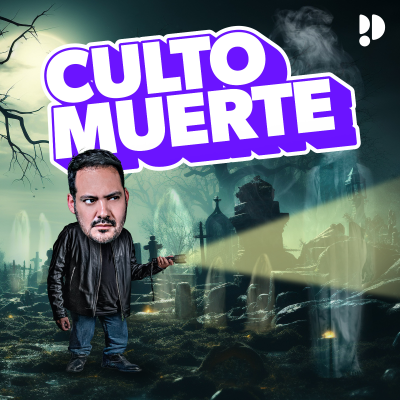
Out of Neutral | Grace Baptist Church
inglés
Historia y religión
Empieza 7 días de prueba
$99 / mes después de la prueba.Cancela cuando quieras.
- 20 horas de audiolibros al mes
- Podcasts solo en Podimo
- Podcast gratuitos
Acerca de Out of Neutral | Grace Baptist Church
Laying hold of the fullness of life Jesus calls us to.
Todos los episodios
92 episodiosThe Voice That Tells You You’re a Failure
[https://images.squarespace-cdn.com/content/v1/56b23a868a65e24fb5da70bb/5986dece-2e30-4453-9810-6aa333eada57/OON+20260225.png?format=1000w] Most of us would never speak to another person the way we speak to ourselves. The voice in our head feeds us false information, replays failures, and whispers that it’s hopeless. It’s loudest when we let our guard down, when confidence takes over, or when the path ahead feels hard. We usually assume that the inner voice is just “us,” but Scripture suggests that something far more is going on. 1. WHY YOU MAKE DECISIONS YOU REGRET Most people consider themselves smart, reasonable, and well-intentioned. But we say and do things we regret all the time. Afterwards, we tell ourselves, “I should have known better.” While we probably need to come to terms with the fact that we aren’t always as smart, reasonable, and well-intentioned as we assume, the Bible describes other forces at work. The same serpent that caused Adam and Eve to doubt God’s Word, deny sin’s consequences, and make wrong seem right (Genesis 3:1-5) is still at work in our world to lead us in paths of regret. Jesus taught that the devil “is a liar and the father of lies” (John 8:44). Too often, we underestimate the ways that his lies resonate in our thoughts. We absorb values without reflecting on them. We chase goals without questioning them. We give ourselves permission and assume there will be no consequences. At each step, Satan is planting lies that lead us astray. And the devil saves his best work for the church. Christians assume that the church is a refuge from the deception of the world—and it should be—but the Bible teaches us to be on guard. We’re told that “Even Satan disguises himself as an angel of light” (2 Corinthians 11:14). Even still, too many people choose a church based on the style of worship music and the quality of the children’s facilities, and they open themselves up to error and regret. We need to ground ourselves in the Word of God. As it says in 2 Corinthians 10:5, “We destroy arguments and every lofty opinion raised against the knowledge of God, and take every thought captive to obey Christ.” 2. WHY YOU FIXATE ON THOUGHTS THAT CRUSH YOU Christians should be some of the most joyful people on the planet. The Bible declares us forgiven, accepted, and cleansed. It promises us grace now and life for eternity. So why do we so often sit with condemning thoughts? Why do we question God’s love and beat ourselves up over our failings? Lack of faith is part of the problem. We refuse to believe what God has said about His followers. We exclude ourselves from God’s promises. But the other problem is Satan’s influence in our lives. He is called “the accuser of our brothers,” and we’re told that he “accuses them day and night before God” (Revelation 12:10). If we understand that Satan is feeding us condemning thoughts, it means that resisting them requires a supernatural response. We should expect this to be a struggle. We need prayer and faith to stand on God’s Word. 3. WHY DOING WHAT’S RIGHT IS SO HARD Have you ever found yourself thinking, “I’m trying to do the right thing, why can’t God give me a break?” We often assume that God must be behind anything that isn’t physical. But the Bible describes Satan as actively opposing the work of God. Every time you set out to do what’s right, you can expect the devil to create difficulties for you. That’s why Paul warned, “We do not wrestle against flesh and blood, but against the rulers, against the authorities, against the cosmic powers over this present darkness, against the spiritual forces of evil in the heavenly places” (Ephesians 6:12). The work of God doesn’t move forward without spiritual opposition, and so we’re called to engage God’s help in prayer. If we recognize that spiritual opposition is a part of the equation, it prepares us for the challenges when they come. 1 Peter 5:8-9 says, “Be sober-minded; be watchful. Your adversary the devil prowls around like a roaring lion, seeking someone to devour.” Those difficulties you’re experiencing aren’t God trying to add to your stress. The devil is trying to take you down, and you need to seek God’s resources to push forward. As a child, I had a little badge on a pair of shoes that read, “The devil made me do it.” It taught me to dismiss the devil and treat Satan as an excuse to do what I want. That mindset didn’t help me. The Fellowship Affirmation of Faith [https://www.fellowship.ca/WhatWeBelieve] says the following about Satan: > We believe that Satan is a fallen angelic being; the originator of sin; the deceiver of the world and the accuser of believers; who uses his real but limited power and presence to oppose the work of God; and who, along with all fallen spiritual powers, will be cast into the lake of fire for all eternity. A right understanding of what Satan can and can’t do creates caution, not fear. It nurtures faith and dependence instead of defeat and discouragement. May God protect you against his devices. In awe of Him, Paul
Three Reasons To Seek God’s Spirit
[https://images.squarespace-cdn.com/content/v1/56b23a868a65e24fb5da70bb/af3d51cf-64c4-486c-8e94-88f2ede3d926/OON+20260218.png?format=1000w] Some people look to God because they’re racked with guilt or facing a painful trial. For me, it was more a sense of weakness. It was like I was living life with cheap batteries that kept running out. The biggest change I experienced in trusting Jesus was discovering the power He gives. What I came to understand as the work of the Holy Spirit within me was life-changing. The Bible describes three key ways that God’s Spirit transforms a person. Seeking Him in these areas invites more of the change that He’s pleased to give. 1. HE GIVES THE POWER TO CONFRONT WHAT YOU’D PREFER TO IGNORE We all develop strategies for avoiding what makes us uncomfortable. We put off hard conversations and procrastinate with difficult tasks. The Holy Spirit grabs our attention when we’re tempted to look away. Jesus said that one of the roles of the Holy Spirit is to “convict the world concerning sin and righteousness and judgment” (John 16:8). Most people justify their sin, explain away righteousness, and avoid any thought of final judgment, but the Holy Spirit works to convince us otherwise. He uses people, circumstances, and the Word of God to help us to confront life as it is, not just as we’d like it to be. Anyone who has come to faith has done so because the Holy Spirit patiently persuaded them. What Jesus said of the Holy Spirit’s role was in relation to the world—to all people—but when a person trusts in Jesus, the Holy Spirit moves into the believer’s life (1 Corinthians 3:16), and His convincing work is only heightened. When we justify ourselves and avoid the uncomfortable things we need to deal with, we remain selfish and immature. Seek the Holy Spirit’s conviction in your life. 2. HE GIVES THE POWER TO BECOME WHO YOU WERE CREATED TO BE When people come to faith, there’s an inward transformation. Paul’s letter to Titus calls it the “regeneration and renewal of the Holy Spirit” (Titus 3:5). Dead people are made alive in Christ (Ephesians 2:5) as they are “born again” by the Holy Spirit (John 3:3). A believer experiences new desires, new motivation, new power, and new hope that flow from a new relationship with God. The Bible describes the ongoing change in a Christian this way: “And we all, with unveiled face, beholding the glory of the Lord, are being transformed into the same image from one degree of glory to another. For this comes from the Lord who is the Spirit” (2 Corinthians 3:18). As we draw near to God and focus on Him, the Holy Spirit makes us more like Him. Your relationships, your career, and your family are all impacted by your character, your habits, and your maturity. Seek the Holy Spirit’s work in making you more like Jesus. 3. HE GIVES THE POWER TO DO WHAT YOU WERE UNABLE TO DO Before you learn about the Holy Spirit, it’s easy to settle for what you’ve always done and assume the limitations you’ve experienced are what you’ll always live with. “I’m not very good at that,” we tell ourselves, or “My personality makes things like that impossible.” While the Holy Spirit never erases someone’s personality, He does redefine their potential. The history of the church is one of God using ordinary people to do extraordinary things. The spiritual gifts He gives are part of that (1 Corinthians 12:4-6). Each believer is given divine enablement to carry out a unique role in God’s mission through the church. But the Holy Spirit’s empowering goes beyond spiritual gifts. In Acts 1:8, Jesus says, “You will receive power when the Holy Spirit has come upon you, and you will be my witnesses.” God’s Spirit gave people who were afraid and withdrawn the courage to speak boldly about Jesus (Acts 4:31). The same is true of all the areas of God’s will we find difficult. Romans 8:26 puts it like this: “The Spirit helps us in our weakness.” When it comes to God’s will, a Christian must completely rethink what they once believed was impossible. We can seek the Holy Spirit to help us do all that God calls us to. What we’ve seen in these three areas—conviction, transformation, and empowerment—is not a personal theory or a private experience. It reflects the consistent teaching of Scripture. The Fellowship Affirmation of Faith summarizes the Bible’s teaching about the Holy Spirit this way: > We believe in the Holy Spirit, who is fully God, the Lord and giver of life, eternally proceeding from the Father and the Son; who convicts of sin, of righteousness, and of judgment; with whom believers are baptized into Christ’s body and by whom they are regenerated, sealed, and indwelt; who sanctifies, illuminates, equips, empowers, assists in prayer, and comforts those who believe in Jesus Christ. This is the Spirit God generously gives to every believer. The Christian life isn’t like a computer with a different operating system. It’s more like a computer whose motherboard and CPU have been upgraded. It’s not just new instructions, it’s new power. Seek the Holy Spirit for all He desires to do in your life. In awe of Him, Paul
Why You Need a God Who Stepped Into Human History
[https://images.squarespace-cdn.com/content/v1/56b23a868a65e24fb5da70bb/ced83f5d-54aa-4402-8c9b-5bd73ceb3935/OON+20260204.png?format=1000w] There’s nothing harder than being in a difficult situation when it feels like there’s no one who really understands. I felt that on my first trip to Japan. I was living on my own, halfway around the world, struggling with the language, the culture, and the sense of isolation. When a family member made a short visit, it wasn’t just the companionship I enjoyed. Finally, I knew that there was someone who shared what I was going through. It made my conversations with them richer and my difficulties easier to handle. The same is true with God. The most challenged truth about Jesus is that He is both God and man. Muslims claim this results in multiple gods. Jews believe that it’s blasphemy. Others just think that it’s a myth. But a God who stepped into human history is just what we need. We need to know there’s a God who gets us, and because He’s God, He not only understands our pain but has the power to overcome it. WHAT WE MEAN WHEN WE SAY JESUS IS FULLY HUMAN While many modern people struggle to believe that Jesus is God, in the first few centuries of the church, the bigger struggle for people was believing that Jesus was truly human. That’s why the Bible records that Jesus got hungry (Matthew 4:2), thirsty (John 19:28), and tired (John 4:6). Hebrews 4:15 puts it like this: “For we do not have a high priest who is unable to sympathize with our weaknesses, but one who in every respect has been tempted as we are, yet without sin.” Jesus had to deal with loneliness, rejection, misunderstanding, and abuse. He faced pressure, opposition, expectations, and betrayal. Whatever we’re going through, Jesus has been there. And He’s faced it without falling into sin, so He can give us a path through whatever we’re facing. WHAT WE MEAN WHEN WE SAY JESUS IS FULLY GOD It means a lot to know that someone understands us, but if they’re stuck in the same mess we are, then there’s consolation but little hope. Because Jesus is also God, He can overcome our biggest problems, not just relate to them. The Bible declares Jesus’ divinity in many ways. In John 20:28, Thomas overcame his doubts and said, “My Lord and my God!” Peter called Jesus “our God and Savior” (2 Peter 1:1). Paul referred to Christ as “God over all, blessed forever” (Romans 9:5), and John called Jesus the Word and said, “In the beginning was the Word, and the Word was with God, and the Word was God” (John 1:1). WHY WE NEED A GOD WHO ENTERED OUR WORLD Only an infinite God could bear the sins of the whole world. That’s why Romans 5:8 can say, “God shows his love for us in that while we were still sinners, Christ died for us.” God stepped into our world, took on our nature, and carried our guilt in a real body on the cross. Jesus is the God who is near enough to truly understand what we’re going through, but great enough to solve our deepest problems. A God who only understands our pain but is unable to rescue us leaves us comforted but unchanged. A God who has only power, but no experience of suffering, feels distant and unapproachable. Rightly clarifying what the Bible says about Jesus is important to avoid confusion. The Fellowship [https://www.fellowship.ca/] Affirmation of Faith summarizes the Bible’s teaching on the Son like this: > We believe in the Lord Jesus Christ, the promised Saviour of the world, eternally begotten of the Father, fully God and fully human; we believe in his virgin birth, sinless life, substitutionary death, bodily resurrection, triumphant ascension, mediatorial ministry, and personal return. This is the God who stepped into history to save us. In awe of Him, Paul
Relating to God as Father When Your Relationship With Your Own Dad Is Complicated
[https://images.squarespace-cdn.com/content/v1/56b23a868a65e24fb5da70bb/8cdeb7dd-57f8-4c8d-aeaa-c46a9c159b42/2026+01+28+Out+of+Neutral+Thumbnail.png?format=1000w] Out of the blue, a church member said to me, “I feel the attraction of Catholicism. The idea of praying to Mary would be a lot easier for me than praying to a God called ‘Father.’” She went on to share how severe her own father had been and how he died when she was still in her early teens. He had left her with scars, and they got in the way of her relationship with God. While her situation was unique, many people experience a similar struggle. Overcoming this involves several deliberate steps. Consider these four. 1. REFLECT ON THE FACT THAT YOU HAVE BEEN ADOPTED INTO A NEW FAMILY When Jesus taught His disciples to pray, He started with “Our Father in heaven, hallowed be your name” (Matthew 6:9). When we call God “Father,” we’re not just using a name that’s convenient; it’s one that we’re to reverence. There’s something important about the names of God because they reveal who He is and what He’s like. “Father” not only expresses something important about God’s relationship with Jesus, but it also reminds us of our adoption into a new family. Galatians 4:4-5 teaches that “God sent forth his Son, born of woman, born under the law, to redeem those who were under the law, so that we might receive adoption as sons.” God’s mission in sending Jesus can be seen as a Father going to great lengths to adopt children. When your own father’s influence in your life has been painful, your adoption is an important truth that requires reflection. God chose you to be a part of His family. In love, He became the Father you may not have experienced. You now have an eternal family that will be perfected in glory. 2. GIVE THANKS FOR THE MANY GIFTS HE’S GIVEN YOU People often try to think about God as their newly adopted Father, but make the mistake of trying to interpret Him primarily through their circumstances. God is most clearly revealed through His Word. Passages like Ephesians 1:3-14 give rich descriptions of all that God has done for us. Meditating and maybe even memorizing these passages can help to reshape an understanding of a Father who is loving, generous, and good. Someone who grieves all that their earthly father failed to provide can come to see their heavenly Father as the one “who has blessed us in Christ with every spiritual blessing in the heavenly places” (Ephesians 1:3). Someone whose earthly father related to them with only selfishness and expectations can come to see their heavenly Father as one who paid the ultimate price to redeem us (Ephesians 1:7). Someone whose earthly father was characterized by judgment can begin to rejoice in “the riches of his grace, which [the Father] lavished upon us, in all wisdom and insight” (Ephesians 1:8). That means that God not only treats us with grace, but He does so in a way that is discerning and helpful to our growth. And finally, the person whose earthly Father always left them questioning where they stood can find assurance in a heavenly Father who gives us in the Holy Spirit a down-payment or “guarantee of our inheritance until we acquire possession of it” (Ephesians 1:13-14). 3. LOOK AROUND AT THE FATHER’S CARE FOR HIS CREATION AND KNOW THAT HE CARES FOR YOU MORE Thinking deeply about Scripture helps change how we think about our heavenly Father, but Jesus also encouraged us to look at the birds and the flowers around us. As you look at your garden or as you stroll through a park, you have an opportunity to reflect on God’s tender care of even the least of all He has made. Jesus knew that we have a tendency to exclude ourselves from statements of God’s blessings. We think to ourselves, “That promise is probably for people who are more faithful than me.” So Jesus pointed to creatures that neither strive nor perform to show us it isn’t about measuring up. In Matthew 6:26, He said, “Look at the birds of the air: they neither sow nor reap nor gather into barns, and yet your heavenly Father feeds them. Are you not of more value than they?” We’re to read passages like this and say, “Yes, I really am valuable to God.” When words fail us, it can be helpful to borrow language that has been shaped by Scripture and tested by the church. The Fellowship [https://www.fellowship.ca/] Affirmation of Faith describes God the Father as follows: > We believe in God the Father, neither begotten nor proceeding, who, in his perfect love, reigns with providential care over all creation, accomplishes his will, and protects and preserves his children whom he redeems and adopts into his family as co-heirs with Christ. That is the Father Jesus wants us to know and trust, even when our earthly experience of fatherhood makes that difficult. Let the Scriptures reshape your understanding of the word “father” and fuel your love for your Father in heaven, even if you grieve the impact that your earthly father has had upon you. In awe of Him, Paul
The Scriptures That Convinced Me That God Is a Trinity
[https://images.squarespace-cdn.com/content/v1/56b23a868a65e24fb5da70bb/cc595bfa-5afe-445c-89f1-c4cde8353ba1/OON+m1w2+Thumbnail.png?format=1000w] The belief that God is both three and one is Christianity’s most disputed doctrine. Jews argue that the Trinity is at odds with the Hebrew Scriptures, which declare God as one. Muslims accuse Christians of polytheism. Jehovah’s Witnesses believe that the concept of the Trinity is pagan and unbiblical. Mormons are convinced that the doctrine was influenced by Greek philosophy. Many are suspicious of the Trinity because the word never appears in the Bible. Is it time for Christians to abandon their belief in the Trinity? THE TRINITY EXPLAINS WHAT THE BIBLE PROCLAIMS It shouldn’t trouble people that the Bible doesn’t contain the word “Trinity.” It doesn’t have the word monotheism either, or most of the theological words that we use to describe what the Bible teaches. These words are just shorthand to help us refer to biblical concepts. The bigger question is whether the Bible teaches that the Father is God, the Son is God, and the Spirit is God, and that God is at the same time one God, not three. The following are some of the Scriptures that convinced me of that. GENESIS 1:1-2 In the opening verses of the Bible, we’re introduced to a concept of God that is more complex than other beings. We hear that “God created the heavens and the earth” (Genesis 1:1), but then we learn that “the Spirit of God was hovering over the face of the waters” (Genesis 1:2). Who is this Spirit of God who appears to act separately but in harmony with God? This happens all through the Old Testament as the Spirit leads people (Psalm 143:10), carries people (1 Kings 18:12), enters people (Ezekiel 2:2), and comes upon them (2 Chronicles 20:14). GENESIS 1:26-27 Then, before we’ve even gotten out of the first chapter of the Bible, we hear God say, “Let us make man in our image, after our likeness” (Genesis 1:26). You can’t help but wonder who God is talking to. Some say that God is just addressing the angels in his royal court, but nobody believes that humans are created in the image of angels—we’re created in the image of God. God uses similar language in Genesis 3:22, 11:7, and Isaiah 6:8. The one God must be a plurality of some sort. ISAIAH 9:6 The hints of the Trinity earlier in the Old Testament reach a climax in Isaiah 9:6 and the prophecy of a Messiah who will be born as a child but called “Mighty God.” The idea that this is just a regular name that declares “God is mighty” will not do. If God is one and the Messiah is divine, then our understanding of God needs to expand. The Old Testament sets the stage for an understanding of the Trinity. JOHN 1:1 What is hinted at in the Old Testament becomes explicit in the New Testament. John 1:1 refers to Jesus as “the Word” when it says, “In the beginning was the Word, and the Word was with God, and the Word was God.” But John is merely reflecting Jesus’ own teaching. He made statements like “I and the Father are one” (John 10:30) and “before Abraham was, I am” (John 8:58). The people who heard Him either accused Him of blasphemy (John 10:33) or worshipped Him as Thomas did in John 20:28 when he proclaimed, “My Lord and my God!” MATTHEW 28:19 The Trinity, far from being a later development of the Christian church, has been a part of Christian baptismal practices ever since Jesus commissioned the apostles. In Matthew 28:19, Jesus sends out the apostles, saying, “Go therefore and make disciples of all nations, baptizing them in the name of the Father and of the Son and of the Holy Spirit.” If Jesus believed that the Father, Son, and Spirit were three gods, grammatically, He should have said “names,” not “name.” The “name” of the Father, Son, and Spirit points to a shared unity of the three members of the godhead. The language of the Trinity is unavoidable. The Fellowship [https://www.fellowship.ca] Affirmation of Faith describes the Bible’s teaching on the Trinity as follows: > We believe in one God, creator of all, holy, sovereign, immutable, and existing eternally in three equal persons: the Father, the Son, and the Holy Spirit, each being truly and essentially God. The church didn’t invent the Trinity. Christians believe it because the Scriptures teach it. That doesn’t mean that it’s easy to grasp. It describes a God who is more complex than any being we’ve ever known. But to simplify the nature of God to make Him easier to understand would be to distort who He really is. Accept the mystery and bow before the wonder that God is both three persons and one God. In awe of Him, Paul
Elige tu suscripción
Premium
20 horas de audiolibros
Podcasts solo en Podimo
Podcast gratuitos
Cancela cuando quieras
Empieza 7 días de prueba
Después $99 / mes
Empieza 7 días de prueba. $99 / mes después de la prueba. Cancela cuando quieras.





































